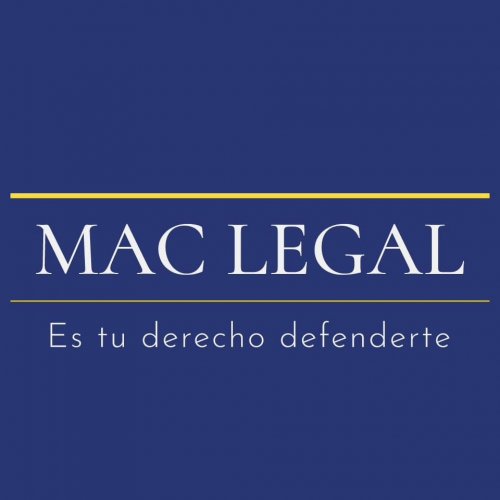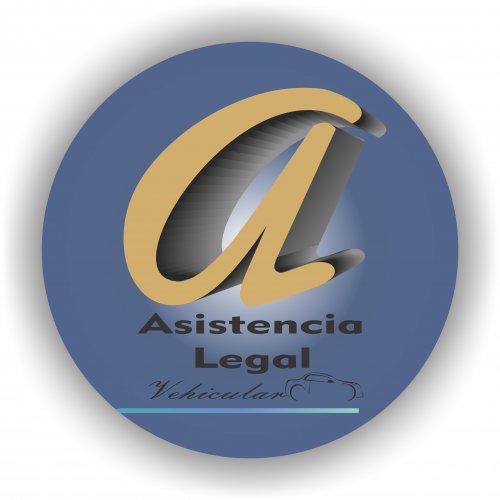Best Car Accident Lawyers in Ecuador
Share your needs with us, get contacted by law firms.
Free. Takes 2 min.
Or refine your search by selecting a city:
List of the best lawyers in Ecuador
About Car Accident Law in Ecuador
Car accident law in Ecuador is primarily governed by the country’s road traffic regulations and civil liability laws. These laws outline the responsibilities of drivers, passengers, and pedestrians, establishing the legal framework for addressing damages or injuries resulting from road traffic incidents. The law aims to ensure fair compensation for victims while promoting safer road use practices.
Why You May Need a Lawyer
There are several reasons why individuals involved in car accidents in Ecuador might seek legal assistance:
- Understanding Your Rights: Navigating local laws can be complex; a lawyer can help interpret and explain your legal rights and options.
- Negotiating with Insurance Companies: Insurers may dispute claims or offer low settlements, and a lawyer can advocate on your behalf to secure fair compensation.
- Legal Representation in Court: If a settlement cannot be reached, legal representation is crucial for presenting a strong case in court.
- Determining Liability: Identifying who is at fault is often disputed; legal advice can assist in gathering evidence and witness testimonies to establish accountability.
- Long-term or Severe Injuries: Cases involving significant injuries may require expert legal analysis to ensure adequate compensation for medical expenses and loss of income.
Local Laws Overview
Key aspects of Ecuadorian car accident laws include:
- Responsibility and Insurance: All vehicles must have insurance covering third-party liability to address damages and injuries caused to others.
- Duty to Report: Drivers involved in an accident must report the incident to the traffic authorities and remain at the scene until officials arrive.
- Punitive Measures: Fleeing the scene or driving under the influence can lead to severe legal consequences, including imprisonment.
- Compensation Claims: Victims can file claims for medical expenses, property damage, and pain and suffering through civil courts.
Frequently Asked Questions
What should I do immediately after a car accident in Ecuador?
Ensure your safety and the safety of others, document the accident scene with photos, exchange information with other involved parties, and report the accident to the police.
Is it mandatory to have car insurance in Ecuador?
Yes, vehicle owners must have insurance to cover third-party liabilities to legally operate on Ecuadorian roads.
How is fault determined in Ecuadorian car accidents?
Fault is typically assessed based on the evidence, such as the police report, witness statements, and traffic laws violated during the accident.
Can I claim compensation for emotional distress?
Yes, Ecuadorian law allows for the claim of compensation for emotional distress and pain and suffering alongside physical injury claims.
How long do I have to file a claim for a car accident?
The statute of limitations for filing a claim in Ecuador is typically four years from the date of the accident, but it’s advisable to initiate proceedings as soon as possible.
What if the driver at fault is uninsured?
If the responsible party is uninsured, victims can pursue a civil suit to seek compensation for damages and injuries sustained.
Is it necessary to have a lawyer for a car accident claim?
While not mandatory, having a lawyer can significantly aid in navigating legal complexities and maximizing compensation, especially in contested or high-stakes cases.
What are the consequences of not reporting a car accident?
Failing to report a car accident can result in fines, license suspension, and potential legal action, especially if injuries occurred.
Can I settle a car accident claim out of court?
Yes, many car accident claims are settled out of court through negotiations between the involved parties or their insurers.
What documents do I need for a car accident claim?
Essential documents include the police report, medical records, estimates for vehicle repairs, and any communication with insurers.
Additional Resources
Several resources can provide assistance and information regarding car accidents in Ecuador:
- Ecuadorian Transit Agency (Agencia Nacional de Tránsito): Offers information on road safety and vehicle regulations.
- Public Defender's Office (Defensoría Pública): Provides legal assistance and can offer guidance for low-income individuals.
Next Steps
If you require legal assistance following a car accident in Ecuador, consider these steps:
- Consult with a Lawyer: Seek out a lawyer specializing in personal injury or car accident law to discuss your case.
- Gather Evidence: Collect all relevant documentation, like the police report, medical bills, and insurance communications, to support your claim.
- Contact Your Insurance Company: Notify them of the accident and provide necessary details to commence the claims process.
- Adhere to Judicial Deadlines: Be mindful of the time limits for filing claims and lawsuits to ensure your case remains valid.
Taking prompt action and seeking professional advice can significantly influence the outcome of your car accident case in Ecuador.
Lawzana helps you find the best lawyers and law firms in Ecuador through a curated and pre-screened list of qualified legal professionals. Our platform offers rankings and detailed profiles of attorneys and law firms, allowing you to compare based on practice areas, including Car Accident, experience, and client feedback.
Each profile includes a description of the firm's areas of practice, client reviews, team members and partners, year of establishment, spoken languages, office locations, contact information, social media presence, and any published articles or resources. Most firms on our platform speak English and are experienced in both local and international legal matters.
Get a quote from top-rated law firms in Ecuador — quickly, securely, and without unnecessary hassle.
Disclaimer:
The information provided on this page is for general informational purposes only and does not constitute legal advice. While we strive to ensure the accuracy and relevance of the content, legal information may change over time, and interpretations of the law can vary. You should always consult with a qualified legal professional for advice specific to your situation.
We disclaim all liability for actions taken or not taken based on the content of this page. If you believe any information is incorrect or outdated, please contact us, and we will review and update it where appropriate.
Browse car accident law firms by city in Ecuador
Refine your search by selecting a city.










